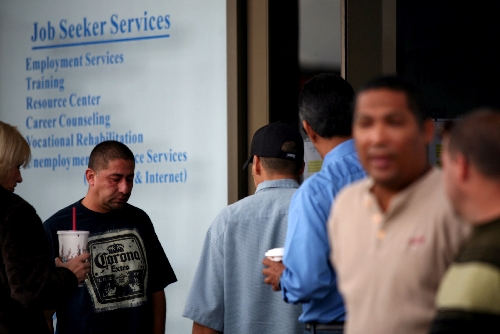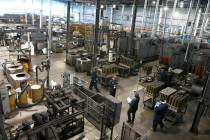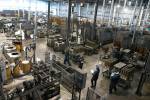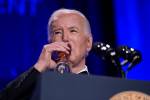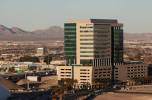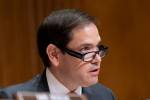Payroll tax increase protested
CARSON CITY -- Two Las Vegas restaurant executives said Monday that the pending average increase of 50 percent in the state unemployment tax will force them to expand elsewhere or possibly to lay off employees.
Justin Micatrotto of Raising Cane's Chicken Fingers said the higher unemployment tax will cost his company $82,000 more in 2011. Instead of adding another restaurant in Las Vegas or Northern Nevada, Micatrotto said the company might open a store in Phoenix.
"The cost of doing business here is pretty high," Micatrotto added.
Jeff Ecker of Paymon's Mediterranean Cafe said increasing the unemployment tax during a recession is "counter to everything" a government should do.
"Restaurants will reduce their payrolls," Ecker said. "Most definitely this equates to laying more employees off."
They spoke during a workshop held by the state Employment Security Division to explain to small-business owners the effects of the higher unemployment tax.
The state Employment Security Council on Oct. 5 unanimously recommended that the tax -- which now averages 1.33 percent -- should be increased to 2 percent on Jan. 1. The tax, entirely paid by employers, covers the costs of benefits paid to their laid-off workers.
The tax is collected on the first $26,600 of each employee's wages. Unemployed workers in Nevada receive an average of slightly more than $300 a week in benefits.
The Employment Security Council's action was only a recommendation. Employment Security Division Administrator Cindy Jones is expected to authorize the increase during a Dec. 7 meeting. The administrator never has gone against the recommendations of the council, a group of labor and management representatives, along with private citizens.
The tax is being increased because the state unemployment trust fund was exhausted in October 2009 and the state so far has been forced to borrow more than $500 million from the U.S. Department of Labor to keep paying benefits. The heavy borrowing occurred largely because Nevada's unemployment rate has tripled in three years and now stands at 14.4 percent, the highest in the nation.
With no signs of recovery looming, the state borrowing is expected to reach $830 million by Oct. 1, 2011. Just three years ago, the state trust fund was more than $800 million in the black.
This loan ultimately must be paid off. David Schmidt, a state economist, does not expect the debt will be repaid before 2018.
Donna Clark, chief of contributions for the agency, said it is preparing a bill for legislative consideration in 2011 that will cover costs of interest on the federal loan. Through bonding, or other financial methods, the state hopes to reduce interest costs paid by employers.
Carole Vilardo, president of the Nevada Taxpayers Association, acknowledged that nobody could have foreseen the effects of the recession on Nevada.
But besides the higher unemployment rate, she lamented that the Legislature next year might increase the modified business tax. This is a 1.17 percent tax paid on each employee's wages.
"We have no idea what the Legislature is going to do," said Vilardo, adding a higher business tax would hurt employers even more.
The modified business tax increase is scheduled to expire June 30. If it is not reauthorized, the rate will drop back to 0.63 percent of each employee's wages. Through the lower rate, Vilardo said businesses would be in better shape because they could avoid a double whammy of higher unemployment and high modified business taxes.
State government, however, faces a revenue shortfall that has been estimated at $1.5 billion to $3 billion.
Despite the coming unemployment tax increase, Vilardo and the two restaurant executives were the only business people to appear at the hearing to raise any objections. According to state estimates, about 35,000 small businesses in Nevada will be hit with the higher tax.
For the average business, the annual amount paid per worker in unemployment taxes will increase from $353.78 in 2010 to $532 in 2011. What increases individual businesses pay, however, varies, based on their frequency of laying off workers. Some pay a tax rate of 0.25 percent, while others pay as much as 5.4 percent.
Employment Security Division representatives were at a loss on why more businesses did not show up at the workshop to make their views known. The meeting, however, was held in the morning, a time when some businesses may have been hard-pressed to attend.
Contact Capital Bureau Chief Ed Vogel at evogel@reviewjournal.com or 775-687-3901.



